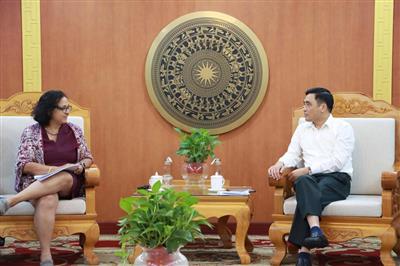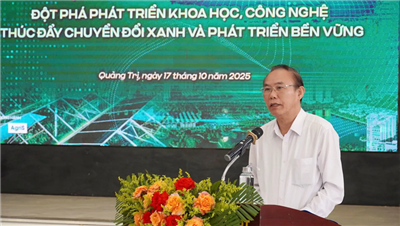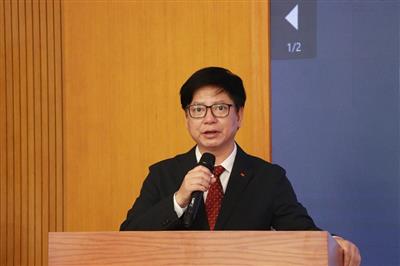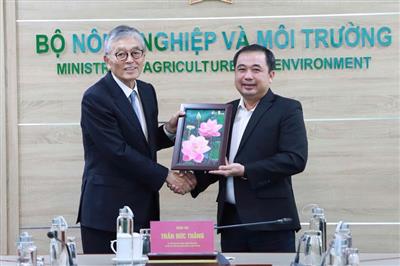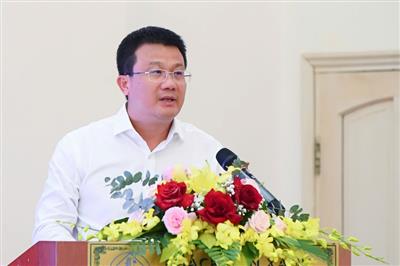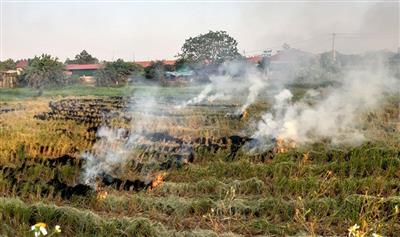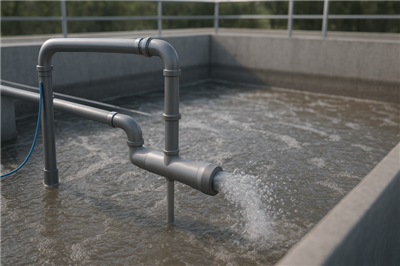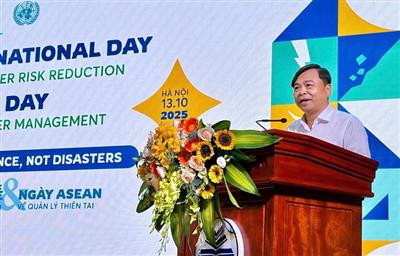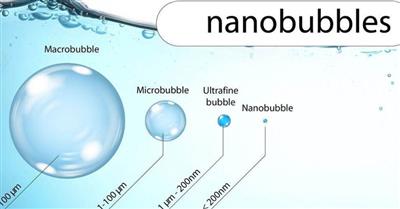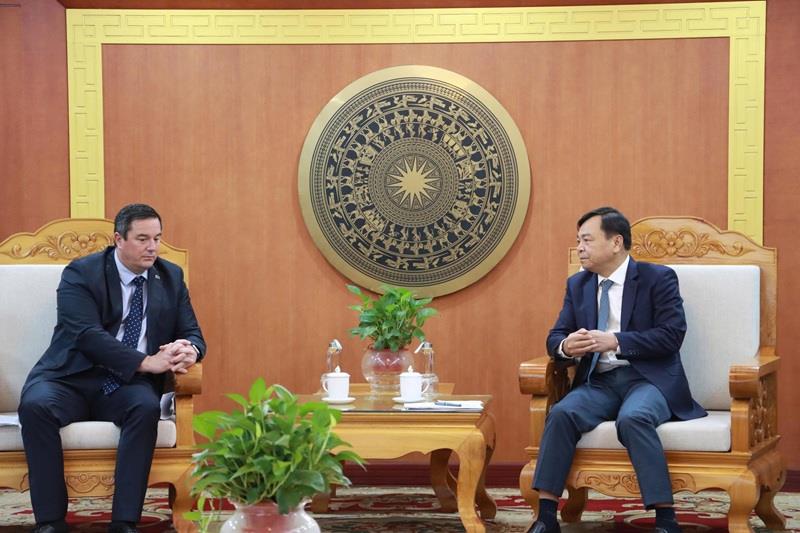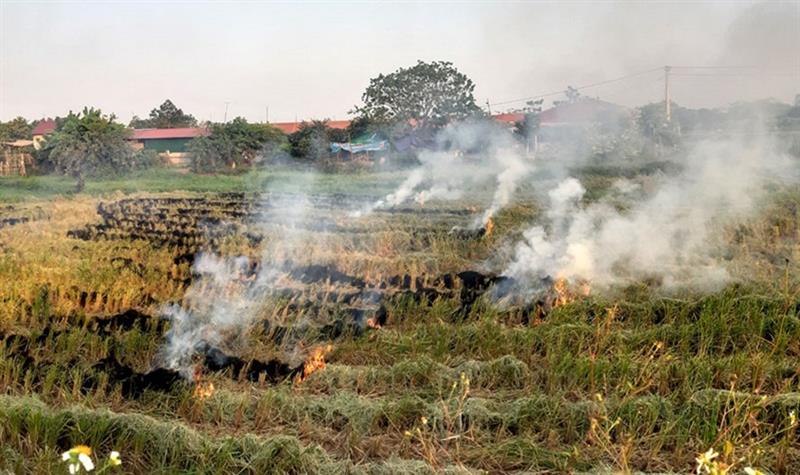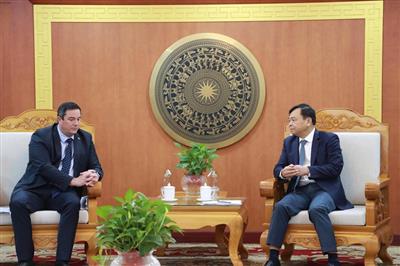
Vietnam at UNOC3: From global pledges to national action for a sustainable ocean
11/06/2025TN&MTFrom June 9 to 13, 2025, the third United Nations Ocean Conference (UNOC3) took place in Nice, France, gathering heads of state and senior leaders from over 150 countries, along with representatives of international organizations, the private sector, and civil society. Under the theme “Action for the Ocean - Advancing Sustainable Development Goal 14,” the conference served as a crucial global platform to reinforce political commitments, promote concrete actions, and expand multilateral cooperation for the conservation and sustainable use of ocean resources.
Attending the conference as a coastal nation emerging as a green growth hub in Asia, Vietnam reaffirmed its consistent stance on sustainable marine development, emphasizing the integration of resource conservation with green economic growth. Speaking at the Plenary Session, Prime Minister Phạm Minh Chính underscored the message that protecting the ocean is not only a moral responsibility of the current generation but also a legal obligation and a long-term development strategy for every nation. The event also provided an opportunity for Vietnam to assert its role as an active and responsible partner in global efforts for a healthy, harmonious, equitable, and sustainable ocean.
Within the framework of the conference, Minister of Agriculture and Environment Do Duc Duy chaired and participated in several important bilateral activities, contributing to the concretization of Vietnam’s national commitments through practical initiatives and cooperative mechanisms. These activities not only reaffirmed the Ministry’s policy coordination role in marine resource management but also deepened strategic partnerships between Vietnam and developed countries, notably Australia.
Vietnam’s strategic vision for sustainable ocean governance
In his remarks at the UNOC3 Plenary Session on June 9, Prime Minister Pham Minh Chinh delivered a strong message affirming Vietnam’s political commitment and strategic approach to marine development in the era of climate change and resource depletion. Recognizing the central role of the ocean in the global ecosystem, food security, livelihoods, and international trade, the Prime Minister emphasized that ocean governance cannot be addressed in isolation but must adopt a holistic, interdisciplinary, and regionally connected perspective.
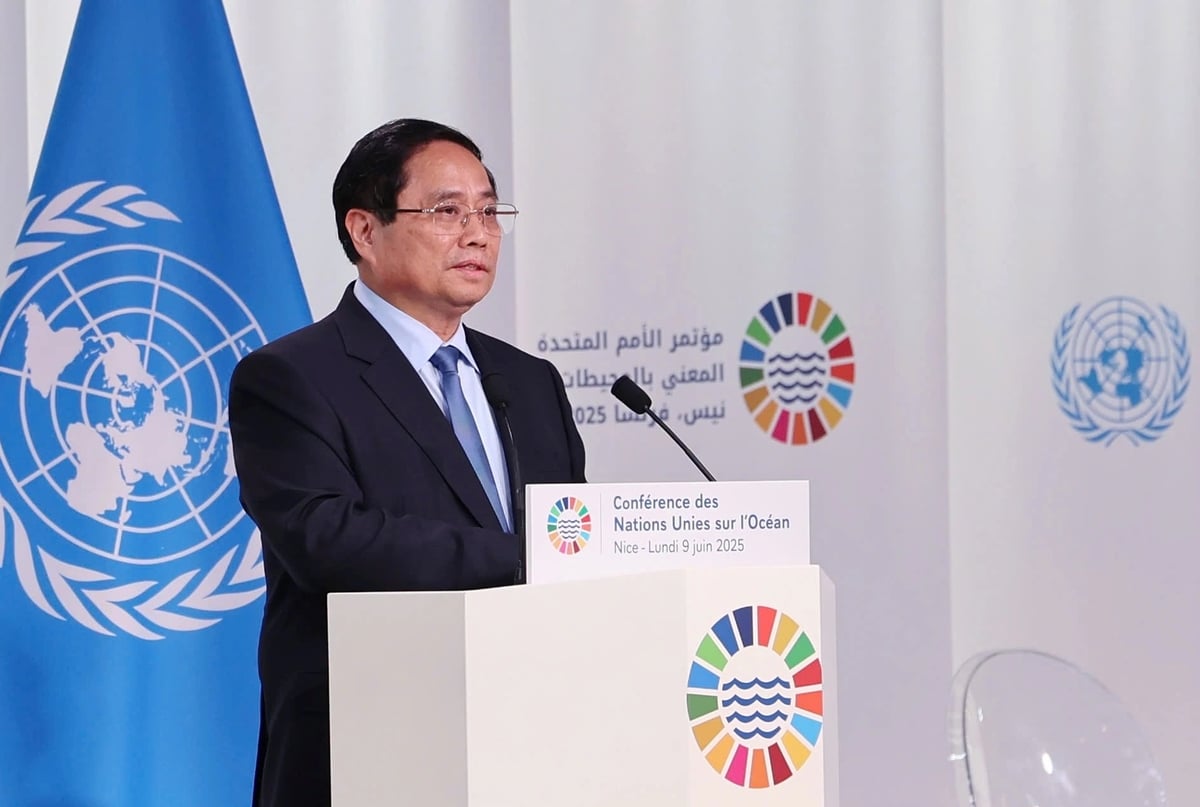
At the UNOC3 plenary, Prime Minister Pham Minh Chinh affirmed Vietnam’s commitment to holistic, integrated ocean governance in the face of climate change and resource depletion
At the international forum, Vietnam’s head of government proposed six key directions to promote sustainable ocean conservation and the development of a blue economy. First, policies must be grounded in scientific evidence and practical experience, integrating modern technologies with traditional knowledge. Second, it is essential to accelerate the application of science, technology, innovation, and digital transformation to enhance the monitoring, management, and rational use of marine resources. Third, unlocking and effectively utilizing financial resources—especially green finance and private investment—will be critical to supporting marine conservation initiatives and sustainable livelihoods for coastal communities.
Fourth, the Prime Minister called for the establishment of a comprehensive, multisectoral ocean governance system with broad stakeholder participation and clear accountability mechanisms. Fifth, he urged stronger interregional, international, and intercontinental connectivity through the development of blue economy hubs to serve as anchors for sustainable marine value chains. Lastly, he highlighted the importance of solidarity and international cooperation as the foundation for addressing transboundary challenges such as plastic pollution, biodiversity loss, and climate change.
These six directions reflect Vietnam’s long-term vision for marine economic development and its concrete implementation of Sustainable Development Goal 14 (SDG14) on conserving and sustainably using the oceans, seas, and marine resources. They also signal Vietnam’s strong political commitment to fulfilling key international agreements such as the Kunming–Montreal Global Biodiversity Framework and the BBNJ Agreement on the conservation and sustainable use of marine biodiversity beyond national jurisdiction.
The Ministry of Agriculture and Environment: Advancing commitments into concrete action
At UNOC3, the Ministry of Agriculture and Environment of Vietnam played a pivotal role in translating national commitments into actionable initiatives for sustainable ocean governance and blue economy development. Under the leadership of Minister Do Duc Duy, the Vietnamese delegation actively participated in bilateral meetings, multilateral dialogues, and technical sessions, contributing to Vietnam’s growing profile as a responsible coastal state on the global stage.
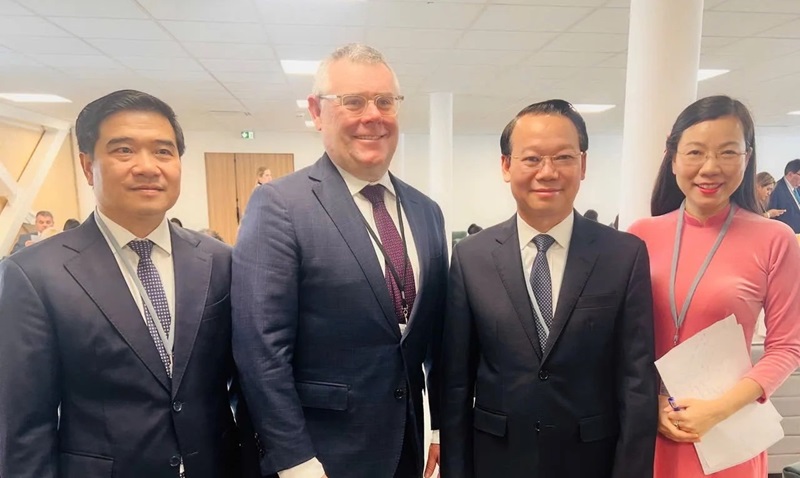
Minister Do Duc Duy and Australian Minister Murray Watt agreed to boost cooperation on sustainable fisheries, marine conservation, vessel monitoring, and IUU fishing control, with plans for a bilateral MoU (Photo: Phuong Vu)
A key highlight was the bilateral meeting between Minister Do Duc Duy and the Honorable Murray Watt, Australia’s Minister for the Environment and Water. The two ministers agreed to deepen strategic cooperation in various areas, including sustainable fisheries, marine protected area (MPA) expansion, the use of advanced technologies for vessel monitoring, marine plastic pollution control, and combating illegal, unreported, and unregulated (IUU) fishing. Australia proposed initiating a Memorandum of Understanding (MoU) to formalize the bilateral partnership and pledged technical support and experience-sharing in marine resource management.
Minister Do Duc Duy welcomed Australia’s proposal and directed relevant technical departments within his Ministry to work closely with Australian counterparts to develop a practical and results-driven MoU. He also extended an official invitation to Minister Watt to visit Vietnam in late 2025 to facilitate further negotiations and expedite the agreement’s signing and implementation.
Beyond bilateral engagements, the Ministry also participated in thematic discussions with international partners including WWF, IUCN, and UNDP. These sessions covered a range of issues, from marine spatial planning and coastal ecosystem management to safeguarding the livelihoods of fishing communities. At these forums, Minister Do Duc Duy emphasized Vietnam’s determination to develop a blue economy that is inclusive, resilient, and environmentally sustainable—directly contributing to the implementation of SDG14.
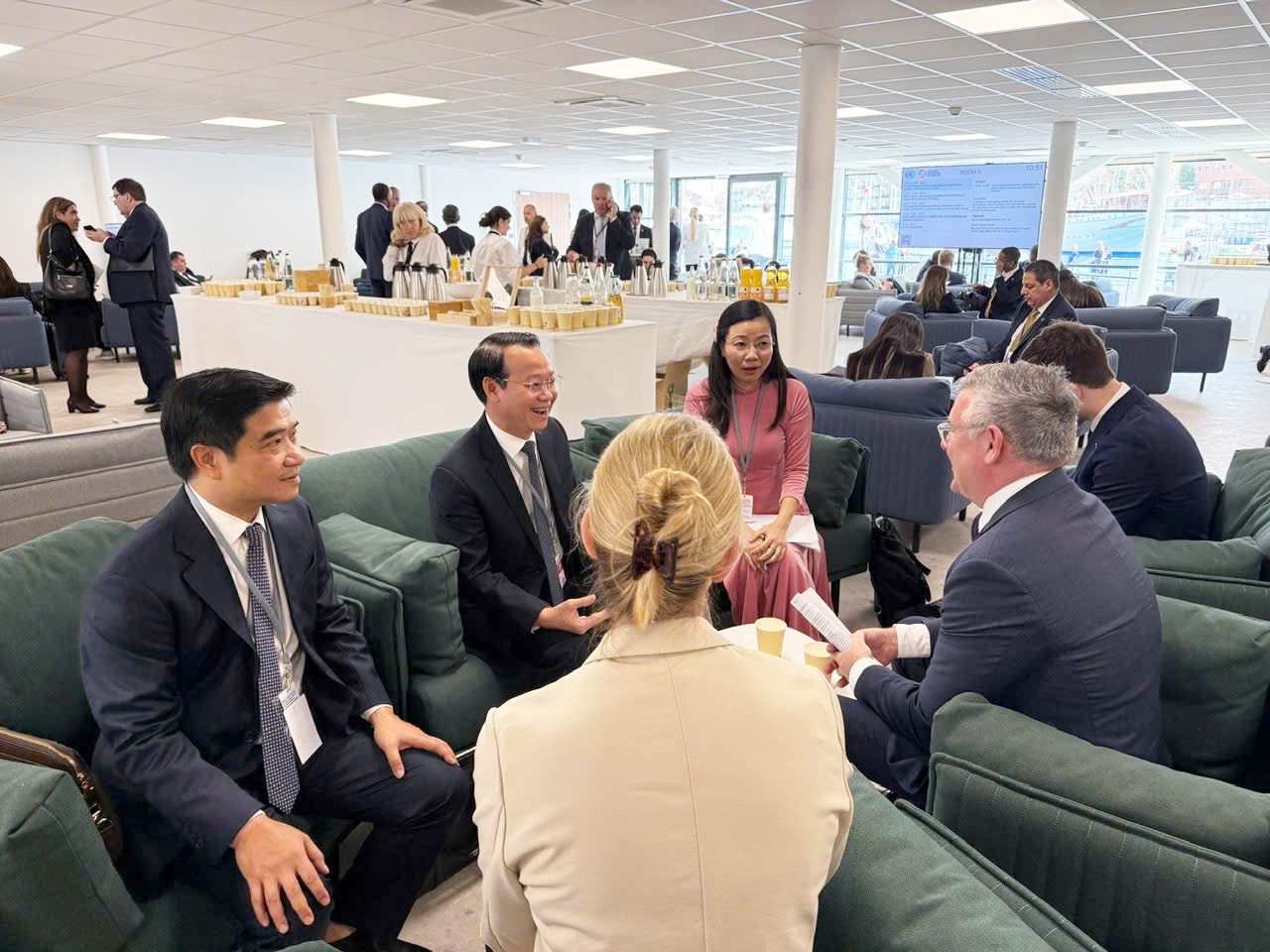
Minister Do Duc Duy welcomed Australia’s MoU proposal and invited Minister Watt to visit Vietnam in late 2025 to advance negotiations and implementation (Photo: Phuong Vu)
Reflecting on the outcomes of UNOC3, Minister Do Duc Duy stated: “UNOC3 was not just a moment to review SDG14 progress—it was a clarion call for collective action, where governments, scientists, and coastal citizens all share the responsibility of protecting the ocean.” He added, “This conference marks a turning point in our global cooperation to address pressing marine environmental challenges and strengthen ocean stewardship.”
Minister Do Duc Duy’s active role and strategic messaging at UNOC3 demonstrated Vietnam’s resolve to move from global dialogue to national action. It also reflected the Ministry’s capacity to bridge international policy with sectoral implementation, particularly in marine resource management, ocean sustainability, and international environmental cooperation.
Bridging global commitments with national policy implementation
Vietnam’s commitments at the Third UN Ocean Conference were not abstract declarations, but rather the continuation of a long-standing policy process aligned with national development priorities. In recent years, Vietnam has systematically developed a cohesive legal and institutional framework for marine conservation, blue economic growth, and effective responses to ocean-related environmental challenges.
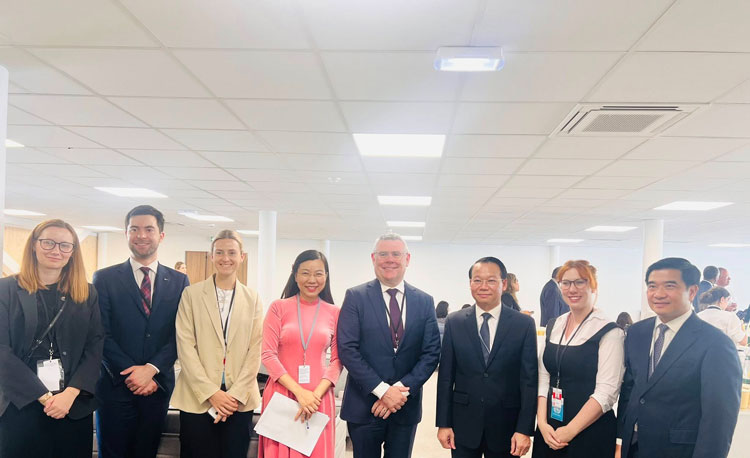
Minister Do Duc Duy and Director General of the Vietnam Administration of Seas and Islands, Nguyen Duc Toan, take photo with Australian Minister for the Environment and Water Murray Watt and other delegates (Photo: Phuong Vu)
Notably, the Vietnam Fisheries Development Strategy to 2030, with a vision toward 2045, sets the goal of building a modern, sustainable, and internationally integrated fisheries sector. This strategy emphasizes enhanced fisheries governance and the protection of marine resources. In parallel, the National Marine Spatial Planning for the 2021–2030 period, approved by the Government, establishes a legal foundation for balancing conservation and economic activities across Vietnam’s maritime zones and coastal areas.
Vietnam has also pledged to conserve at least 6% of its marine and coastal areas by 2030, focusing on ecologically sensitive habitats such as coral reefs, seagrass beds, and mangrove forests. This is part of Vietnam’s efforts to operationalize the Kunming–Montreal Global Biodiversity Framework and contribute to the global “30by30” target, which aims to protect 30% of the world’s oceans by 2030.
In addition, the country is actively refining its legal framework on marine environmental protection and IUU fishing prevention, seeking to have the European Commission’s “yellow card” lifted while enhancing Vietnam’s standing in global seafood value chains. Technology-based vessel monitoring systems, data transparency in catch reporting, and capacity-building for coastal fishing communities are being implemented in several provinces.
These efforts reflect strong coordination between central-level political commitments and sectoral implementation. The Ministry of Agriculture and Environment serves as the key agency responsible for carrying out marine conservation policies, biodiversity protection, marine pollution control, and sustainable coastal livelihoods. Minister Do Duc Duy’s presence and leadership at UNOC3 exemplify Vietnam’s governance model of moving “from commitment to implementation,” prioritizing outcomes and accountability.
From dialogue to action: Vietnam’s ocean commitment in motion
The Third United Nations Ocean Conference (UNOC3) served not only as a global political platform for ocean governance but also as a litmus test for the capacity of individual countries to transform commitments into concrete action. In this context, Vietnam’s robust and multidimensional presence—ranging from the strategic speech of Prime Minister Pham Minh Chinh to the focused bilateral engagements led by Minister of Agriculture and Environment Do Duc Duy—demonstrated a unified and results-oriented approach to sustainable ocean development.
Vietnam is not a bystander in global efforts to protect the oceans from degradation, pollution, and climate change. Instead, it is taking an active role as a policy architect, implementation partner, and contributor of practical solutions. The country’s consistent integration of international political pledges with domestic policy frameworks—evident in its marine spatial planning, marine protected areas network, anti-IUU fishing programs, and blue economy initiatives—reflects a firm national resolve to align words with actions.
At a time when marine environmental security is becoming inseparable from national security and sustainable development, Vietnam views the ocean not only as a space for survival but also as a strategic domain for innovation, international cooperation, and resilient growth. The concrete steps taken at UNOC3 will be further extended through domestic programs and international partnerships at regional and global levels.
With strategic foresight, enhanced policy coordination capacity, and strong partnerships with international stakeholders, Vietnam is undergoing a meaningful transition—from dialogue to action, from commitment to execution—contributing to a shared global vision: safeguarding the ocean as a foundation for the future of all humanity.
Minh Thao


